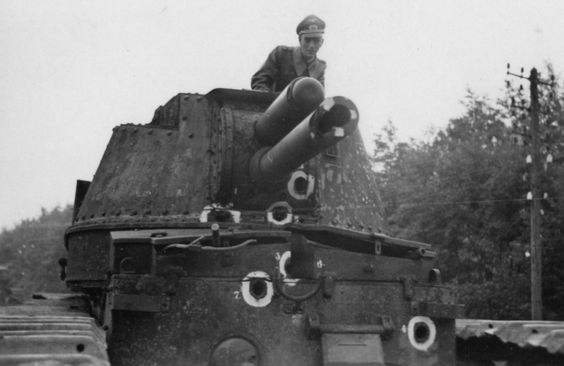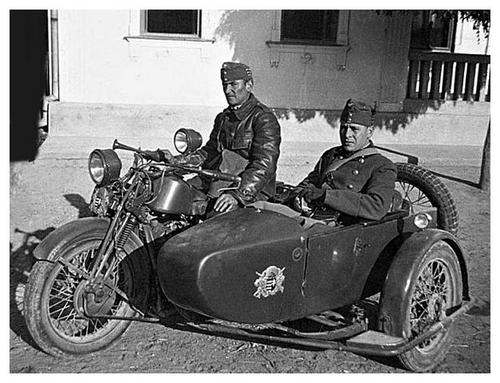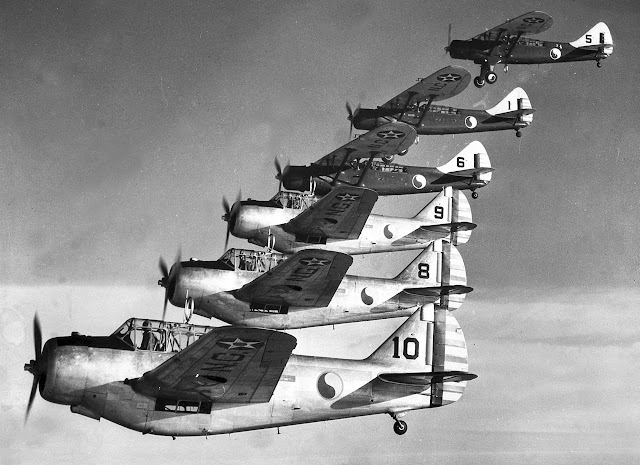Saturday 16 June 1940
Reynaud wants to agree to both proposals, but the rest of the Cabinet wishes for an Armistice, many because they think that the UK is finished, too. Reynaud loses the vote on the proposals and resigns, asking President Lebrun to form a new government.
Reynaud's replacement is Philippe Pétain, the recent ambassador to Spain and a Great War hero. Pétain is an odd choice unless you recognize that the government was tired of trying to resist the unstoppable Wehrmacht onslaught. Pétain is an 84-year-old defeatist, but he is a highly respected war hero and the perfect noble figure to get the public to accept an armistice. Basically, he is a figurehead. Commander-in-chief Weygand is vice president of the council.
Among those who wish to continue to resist is General de Gaulle, who is not included in the new cabinet. He flies to London during the day and begins to plot his next move.
Pétain reviews the situation throughout the day and decides that the situation is hopeless. At midnight, he instructs his Cabinet Secretary, Henry du Moulin de Labarthète, to request France's ambassador to Spain to seek terms from Hitler.
 |
| Generalleutnant Franz Landgraf (16 July 1888 – 19 April 1944). Knight's Cross of the Iron Cross on 16 June 1940 as Oberst and commander of 4. Panzer-Brigade. |
Panzer Group Guderian reaches Besancon, near the Swiss border. He is in position to link up with troops advancing through the Maginot Line from the direction of Colmar and encircle the entire French fortress system. Guderian is astounded at the poor condition of the fleeing French forces, noting: "Exhausted French soldiers fall from their truck to be crushed by the next. The Middle Ages were more humane than this."
German troops cross the Seine near Melun and Fontainebleau. Other troops occupy Auxerre in the direction of Clamecy and Avallon.
German 4th Army approaches Alencon, while the 18th Army reaches Orleans. German 2nd Army and 9th Army reach Dijon. German 1st, 7th, and 16th Armies attack French 3rd Army Group.
General Erwin Rommel, fresh off his spectacular operation north of Le Havre, receives orders to head south and take the key embarkation port of Cherbourg. It is 150 miles to the south, but French resistance is collapsing.
Operation Ariel, the evacuation of the BEF from France, continues. While a smaller operation than Operation Dynamo at Dunkirk, tens of thousands of British and Canadian soldiers are taken off from the ports of Brest, St. Malo, Nantes and St. Nazaire. British ships Arandora Star, Strathaird and Otranto are active in the operation.
Battle of the Atlantic: U-boat UA (Kapitänleutnant Hans Cohausz) torpedoes and sinks British armed merchant cruiser HMS Andania northwest of the Faroe Islands. All 347 aboard survive when they are picked up by the Icelandic trawler Skallagrímur. The UA has been tracking the ship for three days.
U-101 (Kapitänleutnant Fritz Frauenheim) torpedoes and sinks 13,212-ton British freighter Wellington Star 300 miles off Cape Finisterre, Spain at 16:45. All 69 aboard survive when they either are picked up by French freighter Pierre L.D. or reach shore in lifeboats after 8 days.
Royal Navy submarine HMS Tetrarch sinks German boat Samland.
A French warship approaches German vessel Konigsberg, whose crew scuttles it.
Convoy HG 34 departs from Gibraltar.
Battle of the Mediterranean: French sloop La Curieuse depth charges Italian submarine Provano, forcing it to the surface 30 miles south of Cabo de Palos, Spain. The French ship rams the Italian submarine, sinking it.
Italian torpedo boats catch British submarine HMS Grampus with depth charges, sinking it 105 miles east of Sicily. All 59 crew perish.
Battle of the Indian Ocean: Italian submarine Galilei sinks Norwegian tanker James Stove.
European Air Operations: The French air force raids Cagliari, Sardinia with six bombers. The Italians launch a raid on Porto Vecchio and Bonifacio, Corsica. The RAF sends 22 planes to attack Genoa and Milan.
 |
| Italian Savoia Marchetti SM 75 "Ala Littoria" - Tobruk - 16 June 1940. |
The Regia Aeronautica attacks Sollum, Sidi Barrani, and Mersa Matruh, British outposts in Egypt. It also attacks Malta again. Italian bombers based in Sardinia attack Bizerte.
A tank battle takes place at Sollum in which the Italian light tanks come off worse.
The South African Air Force attacks Iavello and Mega, bases in Italian East Africa.
The RAF raids Tobruk, causing extensive damage.
Baltic States: The Soviet Union, having occupied Lithuania after an ultimatum, now issues similar ultimatums to Estonia and Latvia.
In occupied Lithuania, Prime minister Antanas Merkys deposes the absent Antanas Smetona from the post of president. Without constitutional authority, he assumes the presidency himself.
Applied Science: British ship SS Broompark leaves the Gironde (western France). It carries 26 containers of "heavy water." The heavy water was imported from the only source of that water, a plant in Norway that is now under German control, by atomic physicist Joliot-Curie.
German/Spanish Relations: Franco's personal envoy, General Vigon, chief of General Staff, meets with Hitler at Acoz Castle. They discuss possible Spanish entry into the war, which would be strategically devastating to the Allies due to Spain's ability to close the Mediterranean.
Iceland: Canadian Z Force arrives to supplement the British occupation force.
China: At the Battle of Tsaoyang-Ichang, the Chinese 5th War Area opens an offensive against the Japanese 11th Army near Ichang.
British Homefront: Local Defence Volunteers shift into high gear, as fears of a German invasion mount.
 |
| Destroyed French superheavy (69 t) tank, the Char 2C "Alzac" Meuse in Lorraine train station, June 16, 1940. |
June 1, 1940: Devastation at Dunkirk
June 2, 1940: Hitler Visits France
June 3, 1940: Operation Paula
June 4, 1940: We Shall Fight
June 5, 1940: Fall Rot
June 6, 1940: Weygand Line Crumbling
June 7, 1940: British Evacuating Narvik
June 8, 1940: Operation Juno
June 9, 1940: Norway Capitulates
June 10, 1940: Mussolini Throws Down
June 11, 1940: Paris an Open City
June 12, 1940: Rommel at St. Valery
June 13, 1940: France Goes Alone
June 14, 1940: Paris Falls
June 15, 1940: Soviets Scoop Up Lithuania
June 16, 1940: Enter Pétain
June 17, 1940: The Lancastria Sinks
June 18, 1940: A Day of Leaders
June 19, 1940: U-boats Run Wild
June 20, 1940: Pétain Wilts
June 21, 1940: Hitler's Happiest Day
June 22, 1940: France Is Done
June 23, 1940: Hitler in Paris
June 24, 1940: Six Million Jews
June 25, 1940: German Celebrations
June 26, 1940: USSR Being Belligerent
June 27, 1940: Malta in Peril
June 28, 1940: Channel Islands Bombed
June 29, 1940: Gandhi Insists on Independence
June 30, 1940: Channel Islands Occupied
2020




